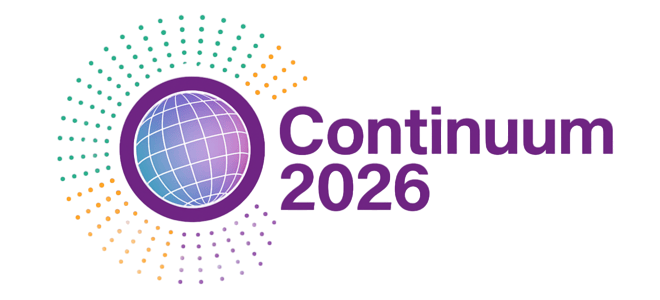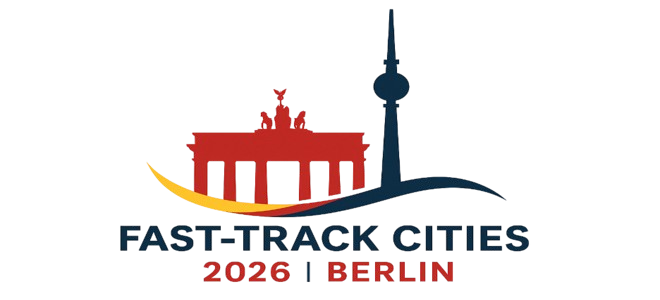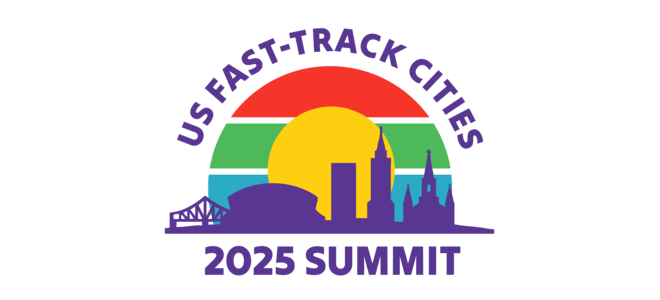![]()
STIGMA is a social justice, human rights, and public health issue. #ZeroHIVStigmaDay is a global movement uniting people and communities to raise awareness of HIV and take action to eliminate HIV stigma in all its forms. July 21st is a day of action featuring communities living with and affected by HIV, activists, clinicians, influencers, and civil society organizations.
Launched in 2023 in honor of the late South African AIDS activist Prudence Nobantu Mabele (July 21, 1971-July 10, 2017), the annual #ZeroHIVStigmaDay is jointly supported by IAPAC, GNP+, Prevention Access Campaign (PAC), and the Fast-Track Cities Institute (FTCI). Prudence set a precedent to encourage other women living with HIV to discuss their status with loved ones, to live without shame, to seek treatment, and to lead happy and fulfilled lives. We chose Prudence’s birthday to honor her work and tireless activism to end HIV stigma.

The 2025 campaign theme, HIV Stigma Warriors, calls on everyone to commit to collaborative efforts to challenge stereotypes and promote an environment of dignity for people living with and affected by HIV. The theme is a global amplification of longtime HIV-treating clinician Dr. Gary Blick’s Stigma Warriors campaign, with which IAPAC officially partnered in 2024. Access our #ZeroHIVStigmaDay toolkit to help amplify and action the HIV Stigma Warriors message. The toolkit includes campaign messages, graphics, and other ideas for you to engage with in the days leading up to and on #ZeroHIVStigmaDay.
We also encourage everyone to read and widely disseminate the Unmasking Stigma, Mobilizing Resilience report, released Zero HIV Stigma Day 2025 (July 21, 2025). Published jointly IAPAC, GNP+, PAC, and FTCI, the report underscores that ending the HIV epidemic requires more than access to medicine; it requires an unrelenting commitment to human dignity. This report draws on contemporary research, community insights, and cross-sectoral expertise to assess the current state of HIV-related stigma globally and to propose concrete strategies for action across multiple levels of society. Following is the report’s Executive Summary:
The global fight to end HIV as a public health threat by 2030 remains one of the most ambitious and noble undertakings in modern public health history. Significant biomedical and programmatic advances – ranging from antiretroviral therapy (ART) and pre-exposure prophylaxis (PrEP) to campaigns such as Undetectable equals Untransmittable (U=U) – have transformed what was once a death sentence into a manageable chronic condition. Yet for millions of people living with HIV (PLHIV) and those most at risk of acquisition, stigma remains a pernicious and persistent barrier that compromises prevention, delays diagnosis, impedes treatment, and erodes quality of life.
Stigma – defined as the devaluation, discrimination, or exclusion of individuals or groups based on perceived difference or moral failing – is not only socially corrosive but clinically consequential. It continues to undermine public health goals, particularly when it intersects with other forms of systemic injustice such as racism, xenophobia, homophobia, transphobia, misogyny, and ableism. This intersectional stigma is experienced most acutely by individuals at the margins – Black and Brown LGBTQ+ individuals, transgender women, sex workers, people who use drugs, incarcerated individuals, migrants, and others for whom societal rejection is not a possibility but a routine.
The Unmasking Stigma, Mobilizing Resilience report underscores that ending the HIV epidemic requires more than access to medicine; it requires an unrelenting commitment to human dignity. This report draws on contemporary research, community insights, and cross-sectoral expertise to assess the current state of HIV-related stigma globally and to propose concrete strategies for action across multiple levels of society.
The report’s findings are sobering. While there have been incremental gains in HIV stigma awareness, actual levels of stigma and discrimination remain alarmingly high across all domains of life. Surveys continue to show that significant percentages of people, even in high-income countries with universal access to treatment, would feel uncomfortable working with, living next to, or even shaking hands with someone living with HIV. In low- and middle-income countries, where stigma is often compounded by inadequate health infrastructure and punitive legal frameworks, the barriers can be even more formidable.
Section 1 of the report explores self-stigma, defined as the internalized shame, guilt, or feelings of worthlessness experienced by people living with or vulnerable to HIV. Research reviewed in this section reveals that self-stigma remains one of the most underreported and undertreated dimensions of HIV’s psychosocial burden. Studies indicate that PLHIV who internalize stigma are less likely to disclose their status, less likely to seek or stay in care, and more likely to experience depression, anxiety, and suicidal ideation. The report draws attention to the disproportionate impact of self-stigma on women, young people, and gender-diverse populations, noting that internalized oppression is often learned early and reinforced through structural and cultural messaging.
Section 2 addresses institutional stigma, which is embedded in the policies, practices, and cultures of organizations, particularly in health, education, employment, and criminal justice systems. Health care settings – ironically, the very spaces where PLHIV seek healing – are often sites of overt and covert discrimination. The refusal of services, unnecessary use of protective equipment, breaches of confidentiality, and judgmental attitudes from providers all contribute to distrust and disengagement. Institutional stigma is further perpetuated through discriminatory laws, including the criminalization of HIV transmission or exposure, which remain in force in more than 60 countries. Such legal frameworks not only ignore the science of HIV transmission but also disincentivize testing and disclosure, thereby impeding public health goals.
Section 3 expands the lens further to examine societal stigma, which refers to the collective attitudes, beliefs, and narratives that shape public perception of HIV and those affected by it. Societal stigma is transmitted through language, media, popular culture, religious doctrine, and family systems. Although public health messaging has improved, many communities continue to frame HIV as a disease of moral failure or irresponsibility. This “othering” of PLHIV persists despite four decades of evidence proving that HIV can affect anyone and that people with an undetectable viral load cannot transmit the virus to others. The media’s tendency to either pathologize or sensationalize HIV, combined with limited representation of PLHIV in news, television, and film, reinforces damaging stereotypes and fosters social alienation.
Importantly, the report centers intersectionality not as a peripheral concern but as a core analytic framework. HIV-related stigma rarely exists in a vacuum. A young Black gay man in Mississippi, an undocumented Latina sex worker in Spain, a transgender woman in Kenya; all these individuals navigate layers of stigma that interact in complex ways to shape their health outcomes and life trajectories. Intersectional stigma cannot be dismantled through siloed responses. It demands holistic, multi-level interventions that honor lived experiences and recognize the compounding effects of systemic exclusion.
To that end, Section 4 provides 25 evidence-informed recommendations organized across five levels of action: global, regional, national, municipal, and individual. These recommendations range from high-level policy interventions, such as decriminalization of HIV and identity-linked behaviors, to grassroots strategies like peer-led education, stigma-free clinical environments, and local storytelling initiatives. The recommendations are anchored in existing human rights frameworks and aligned with the UNAIDS Global AIDS Strategy 2021-2026, which calls for the removal of punitive laws and policies that fuel stigma and discrimination.
At the global level, the report urges multilateral agencies and donors to not only fund stigma-reduction interventions but also hold governments accountable for human rights violations that perpetuate stigma. It also calls for the integration of intersectional stigma indicators into global HIV monitoring frameworks and the adoption of binding commitments that mirror successful models used for other global health challenges. Regional recommendations focus on context-specific strategies that reflect cultural, political, and epidemiological realities – for example, strengthening stigma-resilience networks in sub-Saharan Africa or expanding media advocacy campaigns in Latin America.
Nationally, the report recommends that governments institutionalize anti-stigma programming within national HIV strategies, reform discriminatory laws, and provide ongoing training for healthcare workers. At the municipal level, where many of the most innovative and impactful interventions are taking place across the global Fast-Track Cities network, the report highlights the need to invest in community-led responses, safe spaces, local accountability mechanisms, and intersectional service delivery. Finally, individual actions, while not sufficient on their own, are indispensable. Each person has the power to challenge prejudice, speak truth, support loved ones, and amplify stigma-free narratives.

Section 5, the last section of the report, is a call to action, grounded in the 2025 campaign’s theme: HIV Stigma Warriors. The theme lifts up the resilience, leadership, and creativity of people on the front lines of stigma resistance – activists, health workers, advocates, educators, artists, and everyday people who refuse to be silenced. The report calls on institutions to support these warriors, not tokenize them; to fund their work, not merely celebrate it in July; and to embed their insights into policies, systems, and cultural practices year-round.
The Unmasking Stigma, Mobilizing Resilience report is both a warning and a blueprint. It warns of the consequences of complacency in the face of structural injustice, but also offers a hopeful, actionable roadmap to a world where HIV stigma no longer dictates who gets tested, who receives care, and who lives with dignity. If we fail to act boldly, stigma will continue to undermine the tremendous scientific progress we have made. But if we heed the wisdom of those most affected, and commit to change at every level of society, we can build a future where HIV stigma is a relic of the past.
Click here to access the Unmasking Stigma, Mobilizing Resilience report.
Click here to access an Unmasking Stigma, Mobilizing Resilience report summary presentation.





